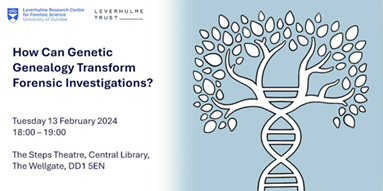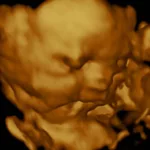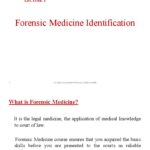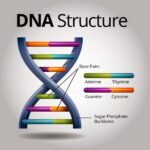The burgeoning fields of genetic consultation and forensic science, while both intertwined with the application of biological principles to legal and societal matters, represent distinct avenues of expertise. Deciding which career path is “better” hinges entirely on individual proclivities, skill sets, and long-term ambitions. This isn’t a contest, but a comparative analysis of divergent trajectories, each possessing unique strengths and appeals. Think of them as two branches sprouting from the same scientific trunk, reaching for different sunlight.
I. Defining the Domains: A Juxtaposition
Before delving into a comparative analysis, a clear delineation of each domain is paramount. A forensic scientist, at its core, is an investigator who meticulously analyzes physical evidence retrieved from crime scenes. Their expertise might encompass ballistics, trace evidence analysis, or serology, providing critical links between perpetrators, victims, and the locus of the crime. Their work is primarily reactive, responding to incidents and leveraging scientific rigor to reconstruct events and identify culpability. Conversely, a genetic consultant operates within a broader spectrum. While they might intersect with forensic casework, their purview extends to personalized medicine, genealogical research, and risk assessment for inherited diseases. They are, in essence, interpreters of the genetic code, providing guidance and translating complex genomic information into actionable insights for individuals, families, or institutions.
II. Core Competencies: Skills for Success
The necessary skill sets for these professions diverge considerably. Forensic scientists require meticulous attention to detail, exceptional analytical capabilities, and an unwavering commitment to objectivity. They must be adept at employing sophisticated laboratory techniques, documenting findings with precision, and presenting evidence persuasively in legal settings. Furthermore, a strong understanding of criminal law and procedure is indispensable. Genetic consultants, on the other hand, demand a different blend of competencies. Strong communication skills are critical, as they must effectively convey complex genetic concepts to individuals with varying levels of scientific literacy. They must possess a deep understanding of genetic principles, statistical analysis, and ethical considerations surrounding genetic testing. Empathy and counseling skills are also crucial, as they often navigate sensitive and emotionally charged conversations with patients and families.
III. Educational Trajectories: Paths to Expertise
The academic pathways leading to these professions also differ. A forensic scientist typically holds a bachelor’s or master’s degree in forensic science, chemistry, biology, or a related field. Specialized training in specific forensic disciplines is often acquired through postgraduate programs or on-the-job training. Certification by professional organizations, such as the American Board of Criminalistics, can enhance career prospects. Aspiring genetic consultants generally pursue a master’s degree in genetic counseling, a program accredited by the Accreditation Council for Genetic Counseling (ACGC). These programs integrate coursework in genetics, counseling, and ethics, along with clinical rotations in various healthcare settings. Board certification by the American Board of Genetic Counseling (ABGC) is a standard requirement for practice.
IV. Professional Environments: Where the Work Unfolds
Forensic scientists primarily work in government crime laboratories, law enforcement agencies, or private forensic consulting firms. Their work environment often involves exposure to disturbing crime scene evidence and stressful casework deadlines. The job can be demanding, requiring meticulous attention to detail and the ability to remain objective in emotionally charged situations. Genetic consultants, conversely, typically work in hospitals, clinics, diagnostic laboratories, or private practices. Their work environment is often more patient-focused, involving direct interaction with individuals and families seeking genetic information and guidance. The role can be emotionally rewarding, allowing them to empower individuals to make informed decisions about their health and reproductive options.
V. Ethical Considerations: Navigating Moral Landscapes
Both professions grapple with complex ethical considerations. Forensic scientists must adhere to strict ethical guidelines to ensure the integrity and impartiality of their work. They must avoid conflicts of interest, maintain chain of custody protocols, and present evidence accurately and objectively, regardless of potential legal outcomes. Genetic consultants encounter a different set of ethical dilemmas, including issues of genetic privacy, informed consent, and the potential for genetic discrimination. They must navigate the complexities of preimplantation genetic diagnosis, predictive testing for late-onset diseases, and the implications of genetic information for family members.
VI. The Lure of the Lab vs. the Call of Counseling
Ultimately, the “better” profession hinges on individual predilections. For those drawn to the intricacies of scientific investigation, the meticulous analysis of physical evidence, and the pursuit of justice, forensic science offers a compelling career path. For those who find fulfillment in empowering individuals with genetic knowledge, providing emotional support, and navigating the ethical complexities of genomic medicine, genetic consultation offers a rewarding alternative. It’s about choosing the scalpel or the soothing balm; both tools are vital in their respective fields, but cater to different needs and aptitudes. The truth is, both professions are critical to society. Forensic scientists play a crucial role in the justice system, while genetic consultants empower individuals to make informed decisions about their health and reproductive futures. The “better” choice is the one that aligns with your personal values, skills, and career aspirations. It’s about finding the branch where you can flourish and contribute meaningfully to the world.










Leave a Comment